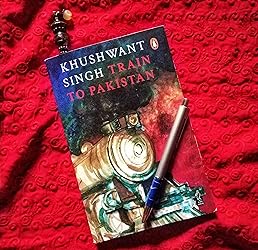The novel is set in the fictional village of Mano Majra, a microcosm of the religious and cultural diversity found throughout India. As the partition unfolds, the village becomes a melting pot of tension, suspicion, and violence, mirroring the chaos and strife that swept across the entire subcontinent. The story is centered around the lives of its diverse inhabitants, who find themselves caught in the midst of communal conflicts and human suffering.
One of the book's most striking features is its poignant and unflinching portrayal of the human cost of partition. Khushwant Singh's storytelling is raw and emotional, and it paints a vivid picture of the horrors and brutality that ordinary people faced as they were forced to abandon their homes, belongings, and lives. The novel is a reminder of the tragic consequences of hatred, mistrust, and religious divisions.
"Train to Pakistan" also explores complex themes, including the role of religion, politics, and societal norms in shaping human behavior. The characters grapple with their own beliefs, prejudices, and desires, making the novel a profound reflection on the human condition and the choices individuals make in times of adversity.
However, some readers may find the novel's nonlinear narrative and shifts in perspective challenging to follow at times. The story unfolds from multiple points of view, which can be disorienting for those not accustomed to this narrative style. Additionally, the novel's ending, while thought-provoking, may leave some wanting more closure or resolution.
In conclusion, "Train to Pakistan" is a significant work of literature that shines a powerful light on a dark and painful period in history. Khushwant Singh's storytelling is haunting and emotionally resonant, providing readers with a moving and visceral understanding of the human tragedy that unfolded during the partition. While it may be a challenging read due to its narrative style, it remains a highly recommended book for those interested in historical fiction, human drama, and a profound exploration of the consequences of religious and political divisions.



